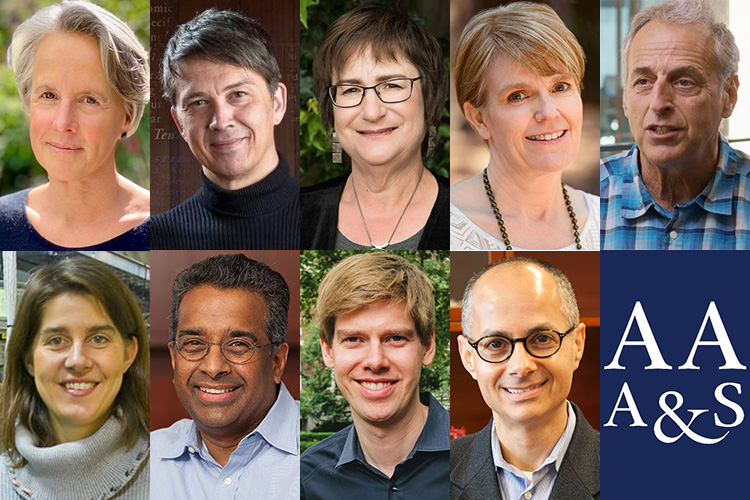Nine faculty members elected to American Academy of Arts & Sciences
Counting the nine new AAAS members announced today, there are now about 275 members of the academy at UC Berkeley

April 28, 2022
Nine UC Berkeley faculty members have been elected to the American Academy of Arts and Sciences (AAAS), bringing the total number of living AAAS members at Berkeley to about 275.
Since its founding in 1780, the academy has honored excellence and convened leaders to examine new ideas, address issues of importance to the nation and the world, and advance the public good. This year’s election of 261 new members continues a tradition of recognizing accomplishments and leadership in academia, the arts, industry, public policy and research.
“We are celebrating a depth of achievements in a breadth of areas,” said David Oxtoby, president of the academy. “These individuals excel in ways that excite us and inspire us at a time when recognizing excellence, commending expertise and working toward the common good is absolutely essential to realizing a better future.”
The 2022 AAAS members are:
Wendy Brown, Berkeley professor emerita of political science and currently the UPS Foundation Professor in the School of Social Science at the Institute for Advanced Study in Princeton, New Jersey. Her work has explored feminist theory, neoliberalism, public higher education and 19th and 20th century political theory.
Gerbrand Ceder, the Samsung Distinguished Chair in Nanoscience and Nanotechnology Research and professor of materials science and engineering. In his work, Ceder uses both computational and experimental approaches to develop novel materials for energy storage devices, including lithium-ion, sodium-ion, magnesium-ion and solid-state batteries.
Lauren Edelman, the Agnes Roddy Robb Professor of Law and a professor of sociology. Her research has focused on the interplay between organizations and their legal environments, including areas such as employers’ responses to civil rights laws, accommodations of workers with disabilities and dispute resolution.
Rebecca Heald, the Flora Lamson Hewlett Chair and Professor of Cell Biology, Development and Physiology and professor of molecular and cell biology. Using frogs, Heald studies how cells segregate their chromosomes when they divide, and how mistakes made during cell division relate to cancer. She is also studying how cells regulate their size.
Richard Ivry, professor of psychology, head of The Cognition and Action Lab and a member of the Helen Wills Neuroscience Institute. Ivry studies cognitive neuroscience, with a focus on how people plan and execute actions and movements. His research also looks at neurological disorders, such as ataxia.
Alessandra Lanzara, the Charles Kittel Chair in Physics and faculty scientist at Berkeley Lab. A solid-state physicist, Lanzara seeks to understand the underlying physics in complex novel materials and nanostructures, in particular carbon-based materials such as graphene, graphite intercalated compounds and nanotubes.
Ramamoorthy Ramesh, the Purnendu Chatterjee Chair Professor in Materials Science and Physics and faculty scientist at Berkeley Lab. Ramesh focuses on the science and technology of complex functional oxide materials. His work has led to the development of nanosized materials that can power increasingly small but sophisticated electrical devices with minimal amounts of energy.
Jón Steinsson, Chancellor’s Professor of Economics and co-director of the Monetary Economics program of the National Bureau of Economic Research. His research has focused on such empirical economic issues as inflation, fiscal shocks and the dynamics of pricing.
Omar Yaghi, the James and Neeltje Tretter Chair Professor of Chemistry and co-director of the Kavli Energy NanoSciences Institute and the California Research Alliance by BASF. Yaghi is known for pioneering several classes of new materials, including metal-organic frameworks (MOFs), which are proving useful for hydrogen and methane storage, carbon capture and conversion, water harvesting from desert air, and catalysis.